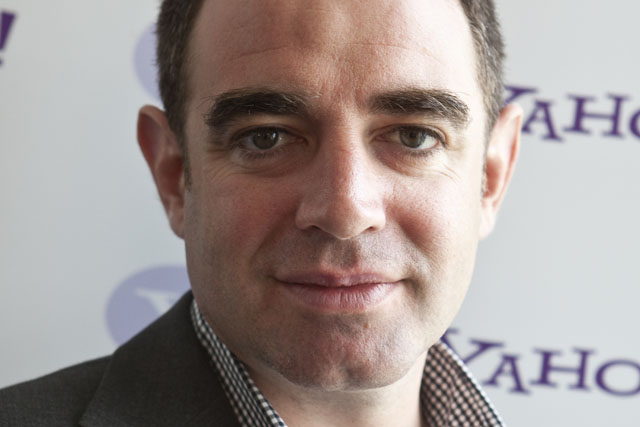Marketing: How does your content strategy work?
James Tipple: We start with our proposition: what is it that Yahoo! needs to be in a particular space, what are our competitors doing and what do our users want. Within that there is a huge product play, a content strategy play and a marketing strategy play.
We set out our sports strategy 12 months ago. We were clear we wanted to do an exclusive on the World Cup, to invest in content around the Premier League and do big things around London 2012.
As a result of that, within maybe just over 12 months, we have now closed the 2.5 million user gap on Sky. This is huge testament, not only to our intent, but to what we can actually do with what we have got.
We now need to prove it’s not just a one-off but a sustained and credible position that we can deliver against. And that’s what the media agencies need to hear, to enable them to ensure their clients are getting the best return on their investment, which as we know is through digital media anyway.
Marketing: Mailonline, Holy Moly and the rest - there’s such competition in the UK celebrity news market. What difference can omg! make?
We’ve done the background work and looked at who is in that space today. We’re clear that if content is our opportunity, then we need to make sure we are leading the market. Through in-depth research, like the What Women Want study, we believe that we have found a way to get to the number one spot in the celebrity news space.
omg! not only appeals to our users but it gives our advertisers the opportunity to speak to this very important space of 16-24 year-old women.
We launched OMG! in the US in 2007 and it's now the number one celebrity news entertainment site there, with 30 million users.
Marketing: What differences are there between OMG! and these competitors?
We have the track record and are ahead of the game. But this also means we have to push ourselves harder to make sure we capitalise on that advantage. Launching sites like omg! and what we’ve done with sports, and our customer solutions for advertisers, does not happen overnight.
Marketing: How are you tailoring OMG for the UK market?
This is all about having the right blend of content, so we need to make sure we’ve got original, aggregated and crowd-sourced content in there.
In the UK, we’ve recruited Julia White, the ex-deputy online editor of OK! Magazine. Her insight and her connections in the industry will enable us to get original content in this space. We will also partner up with the likes of the 3am Girls in the UK, making sure we’ve got the best of the aggregated material but with original content too. Obviously social media is a key element of this.
Marketing: Are media agencies your target market?
Media agencies and brands alike. It’s about getting the blend right. So for example, in France we did a partnership with Diet Coke whereby we integrated content into the news environment there, with a microsite with lots of Diet Coke elements that were interesting to the target audience that Coke wanted to attract. We drove over 750,000 unique users during one month and then converted them into direct unique users for the Coke site as well.
Marketing: There is a real battle for content out there. Are you doing organic as well as acquisitive deals along the lines of OMG?
Securing Premier League content [in 2010] was a coup and shows we are serious about delivering our strategy. You need to have a mix of aggregated, exclusive and curated content but increasingly, there is a need to get into crowd-sourced content. The split and the blend of those three elements vary slightly depending on the proposition you are putting against your content destinations.
We are very clear of where we want to go with sport and therefore going for exclusive rights like the Premier League was right for that strategy.
Marketing: What are you doing around the London 2012 Olympics?
We’re going to be doing a lot around the Olympics, but I can’t share any plans with you specifically other than to tell you that they are well underway.
It’s about having the right blend of original, aggregated and curated content for the Olympics. The original way we applied our thinking around things like the [2010] World Cup and the Beckham exclusive interview will apply to [our] Olympics [content].
Marketing: How do you ensure content delivers profit for Yahoo?
Invariably the content that the majority of people are interested in is actually very akin to the audience that the advertisers most want to speak to.
We’re putting a lot of focus into our content destinations like sport and omg! and looking at the audiences these attract. If you are engaging people with your content in a way that means they are coming back to you every day, then that is also the audience that the advertisers want to speak to.
A good example of this is the Premier League content we have in the UK. On Monday morning, we have a 90-second summary of everything that is going on and we know that the right time to communicate with this audience is on Monday. We’ve got the right information and that’s compelling information for advertisers too.
Marketing: Are ad agencies set up to deliver content? Do you see them as rivals?
I think there’s an opportunity for everybody. It’s how you identify and work out how you are going to play with that opportunity. Advertising agencies will be in the middle of the mix, I’m sure.
- Ends -


